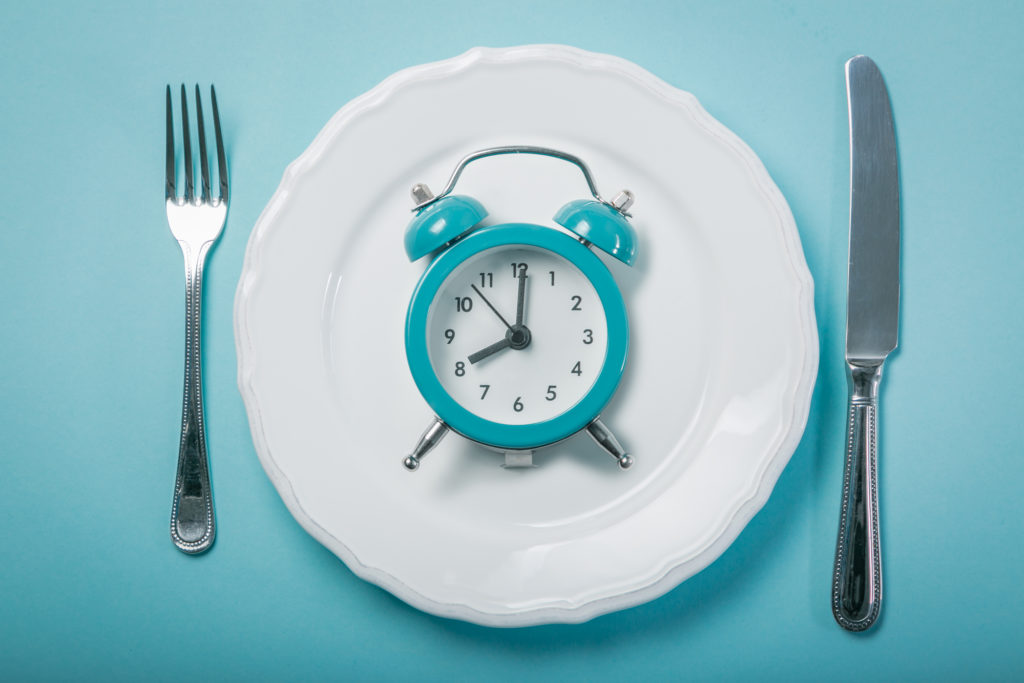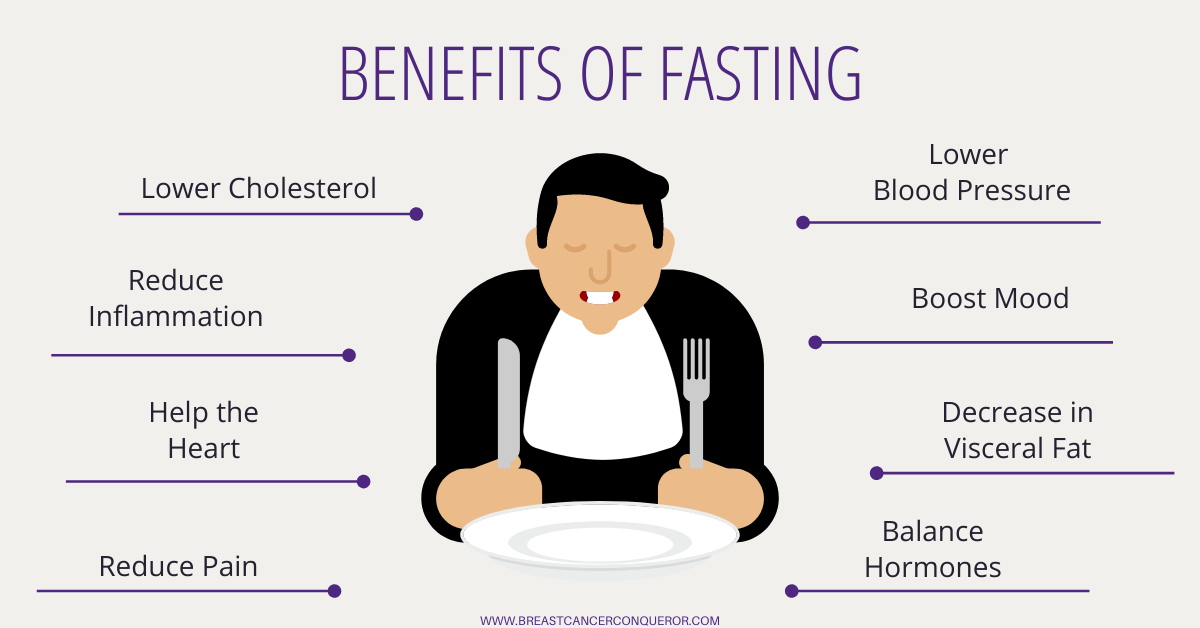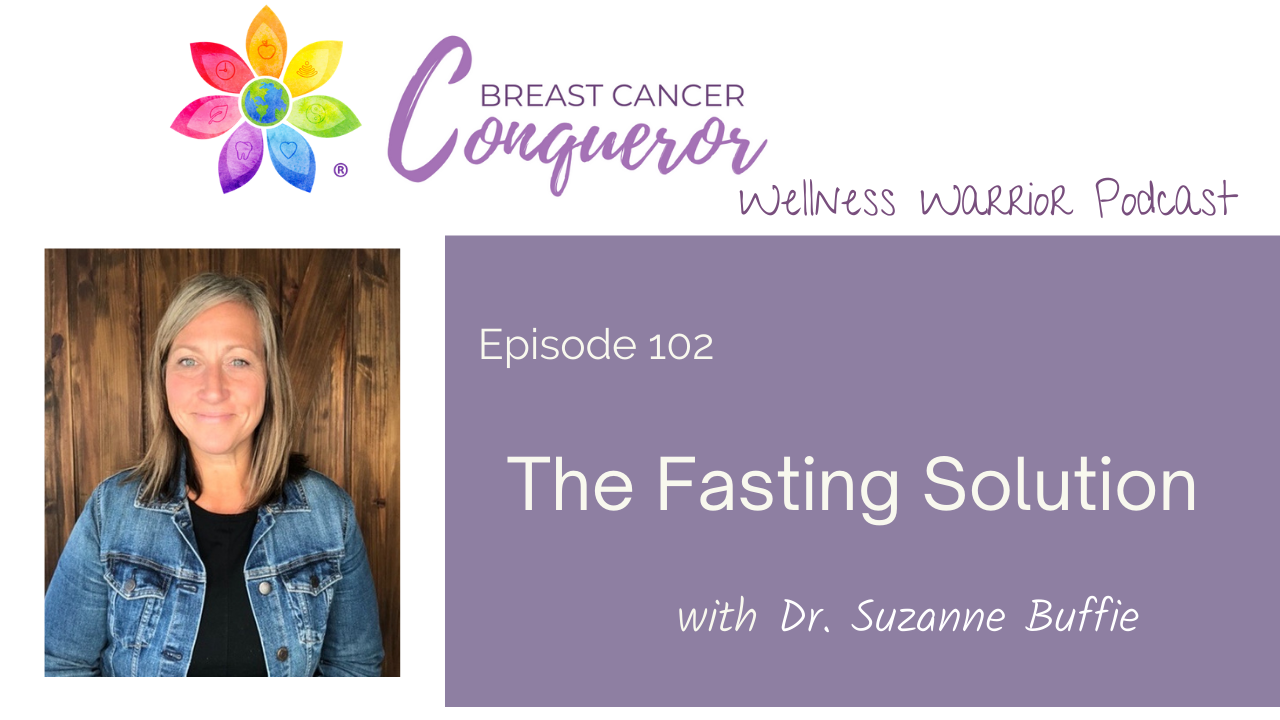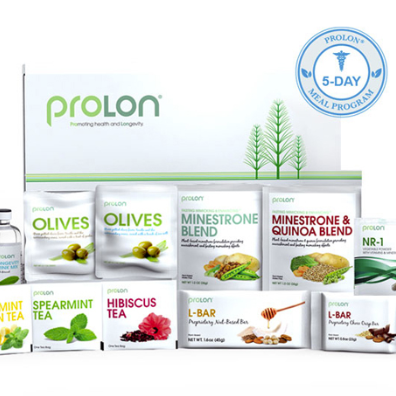
Fasting is a simple act, but it can become the catalyst for some pretty amazing results. For many—maybe even for you–going without food for longer than a few hours can be difficult and emotionally challenging. So how do you know if fasting is right for you and, if so, what kind of fast should you do? Read on to learn more about the benefits of fasting and calorie restriction as well as two unique protocols—intermittent fasting and the Fasting Mimicking Diet—that may work for you on your Healing Journey.
People Have Been Fasting for Thousands of Years
In very general terms, fasting can be defined as the act of abstaining from eating food for a specific period of time. Fasting was an adaptive process that occurred when people had to abstain from food during times of food scarcity.
In modern times, the amazing health benefits of even short-term fasting are now backed by sound science. If you think about it, it just makes sense. There is a reason why most mammals—not just people— go on fasts every once in a while. “Going without” gives your body a rest from digestion. It also kickstarts mechanisms in the body that can boost the immune system, help reverse cancer, and rejuvenate the whole body.
What You May Not Know About Fasting
Before we go into the two kinds of calorie restriction routines I recommend most for those on a healing journey, let’s learn a little bit about the benefits of fasting in general.
One of the big things that fasting can do is boost the immune system. According to an article published in 2014 in the respected journal Cell Stem Cell, a 72 hour fast regenerates the immune system. The study also found that these immune-boosting effects helped reduce the side effects of chemotherapy.
Fasting can also lower the risk of cancer in general and slow tumor growth and metastasis. A study conducted by the University of California (USC) found that volunteers who fasted had reduced production of an enzyme called PKA (Protein kinase A). PKA has been linked to increased cancer risk and tumor growth. A National Cancer Institute mouse model investigation discovered that fasting just one day a week can increase the expression of the tumor-suppressing p53 gene.
Fasting has also been shown to:
-reduce inflammation
-boost mood and cognitive function
-help to balance gut flora
-reduce pain
– balance hormones
-help the heart
-balance blood sugar
-promote cellular health

Fasting Promotes Cellular Autophagy
Perhaps the most important thing that fasting can do is to promote the process known as autophagy. Autophagy loosely means “self-eating” in Greek. It is a major vehicle for detoxification and one of the main ways the body “cleans house” or recycles dead and dying cells.
According to the Nobel Prize-winning research of Japanese cell biologist Dr. Yoshinori Ohsumi, autophagy is the process of cell recycling that occurs when the body is starved of nutrients. Besides fasting, autophagy can also happen when we sleep and through exercising. Dr. Ohsumi’s research found that autophagy helps control function and maintain health at the genetic level. Autophagy reduces inflammation and oxidation in the body. It also prevents neurological decline and can add energy (and years) to your life.
Fasting Option #1: Intermittent Fasting
Not everyone can (or should) dive in with both feet when it comes to fasting. Going for days drinking nothing but water and electrolytes can actually cause increased stress in your body, especially if you cannot take time off from a busy schedule. Consult with your health care provider if you have diabetes, heart disease, fatty liver disease, or autoimmune disease before considering a fasting regime.
If you are unsure if fasting is for you, take heart. Intermittent Fasting (IF) is the system of eating that I have recommended to many Healing Divas. It is also the protocol I try to follow myself. If you are just starting out on your Healing Journey with Breast Cancer, then intermittent fasting may be for you!
Odds are you have already heard of intermittent fasting. It is definitely a “buzz word” in the wellness world these days. One of the reasons why IF is so popular is because it can give you most of the benefits of straight fasting, but without the challenge of going without food for days.
All types of calorie restriction will put a little bit of “stress” on the body. A little bit of “hunger stress” is actually a good thing because it is this kind of stress that provokes autophagy. With intermittent fasting, you may experience hunger stress initially, but it won’t last as long and, after a time, many people don’t experience it at all. With IF, a person typically goes from 14 to 18 hours without eating. They also restrict eating time to a certain window, usually a period of 4 to 6 hours during the day. If you have your last meal at 6 PM and don’t eat until 1 or 2 PM, then you have successfully experienced an Intermittent Fast.
One of the reasons why intermittent fasting works is because a person does not have to go that long without eating before autophagy kicks in. Studies have found that the process can begin in as little as 13-16 hours. One example that proves this point was done at the University of Alabama on prediabetic obese men. One group of men ate during a window of 12 hours (7 am to 7 pm) while the other ate during a window of 8 hours (7 am to 3 pm), thus going on a 16 hour fast each day. Those who did the 16-hour fast consistently had improved insulin sensitivity and lower blood pressure. As an added bonus, they also had a decreased appetite. They didn’t feel like they were starving at all.
New studies have also shed light on what nighttime intermittent fasting can do to keep Breast Cancer reoccurrence at bay. A 2016 joint study conducted by the University of California, San Diego, and San Diego State University was done on over 2,500 women with early-stage Breast Cancer. It found that those who had a “short duration nighttime fasting” (i.e. the time between eating before bed and upon arising) rate of 13 hours or less were 36% more likely to have a cancer reoccurrence than those who had a nighttime fasting rate of more than 13 hours.
 I recently had a chance to speak with someone who has had both personal and professional experience with fasting and intermittent fasting. Dr. Suzanne Buffie is a chiropractor and coach in Winnipeg, Manitoba, Canada. She is also the founder of the Fasting Solution. A huge part of what Dr. Suzanne does is help people change their mindset around eating and “dieting”.
I recently had a chance to speak with someone who has had both personal and professional experience with fasting and intermittent fasting. Dr. Suzanne Buffie is a chiropractor and coach in Winnipeg, Manitoba, Canada. She is also the founder of the Fasting Solution. A huge part of what Dr. Suzanne does is help people change their mindset around eating and “dieting”.
“I try to teach the clients in my program, [during] your feasting period, you feast on the best foods for you for the best results,” Dr. Suzanne said in our recent interview for the Wellness Warriors podcast. “And if you should decide to eat something that is not best for you, number one, …enjoy it! There is no guilt or shame because what you are thinking while you are eating that food, greatly changes what happens in your body. …And then you move on to your next fast.”
Be sure to check out my Wellness Warrior podcast interview with Dr. Suzanne Buffie HERE!
The Fasting Mimicking Diet: When Fasting Is Not For You

Intermittent fasting supports your health when you can go at least 13 hours without eating (drinking water and other no-calorie beverages are okay). Studies have shown this is the point when autophagy begins. Completing a nighttime fast of 14-16 hours is ideal.
For those who simply cannot (or will not) go that long without eating, the Fasting Mimicking Diet (FMD) is a great option. The FMD was created by Dr. Valter Longo. Dr. Longo is a “bio-gerontologist” who specializes in nutrition and longevity. In particular, he looks at how food (as well as lifestyle considerations) helps or hinders genetics and the onset of disease in the elderly.
The FMD uses calorie restriction to induce the same benefits as fasting. It has some great research behind it to show that it works. A 2015 study conducted by Longo and his team at the University of Southern California found that the diet can reduce cancer risk. In addition, other studies have found that the Fasting Mimicking Diet can:
-encourage healthy stem cell growth
-help balance insulin
-strengthen bones
– protect the brain
-balance blood pressure
-balance cholesterol
-reduce visceral fat
-lower C Reactive Protein levels (a major marker for inflammation)
-lower Insulin Growth Factor 1 (a substance related to aging)
-increase longevity in general
A 2020 study in Nature magazine published the results of the FMD clinical trial on breast cancer showing a significant increase in cancer cell death for women who complied with FMD+Chemo regimen (300-400% increase in the chance of killing 90-100% of cancer cells).
The Fasting Mimicking Diet is a patented program distributed by Dr. Longo’s company, ProLon™. It is designed to provide a 5-day supply of meals once a month in order for a person to achieve the autophagy and other-related benefits that fasting can provide while still eating. I experienced the FMD firsthand in 2018 and regularly enjoy it . I did feel like I achieved the detox and other benefits of fasting while still eating light yet nutritious and rather tasty soups and snacks.
Be sure to check out the ProLon™ Fasting Mimicking Diet kit in the Breast Cancer Conqueror store for more information and to order your 5-day supply today!
What Fasting Program is For You?

It is always a good idea to consult with your natural health professional or nutritional coach before embarking on any major change in your diet and lifestyle routine. This includes intermittent fasting since there are different kinds of intermittent fasting routines and one may be better for you than another. On the other hand, if you have a busy lifestyle or aren’t into going hours without eating, then the “diet in a box” approach that the FMD and the ProLon™ program provides may be for you.
The main thing to remember is that eating less and eating less often really can be a valuable tool for you to have in your Healthy Breast toolbox. People have known this for years, and nowadays there is sound science to prove it!

I have no problem fasting ,,I normally do on Monday and Friday,, tomorrow I go for a follow up mammogram,, I have calcification in my left breast. I will not cut, or poison my body. I will fight this naturally. My question is this. Since I am successfully doing Mon. And Fri. Should I switch and do like,,,, Monday, Tuesday and Wednesday? I’m used to fasting,, I rather like the feeling if being slightly hungry. I drink water and decaf herbal tea? Give me your honest best shot at how rigid I should be to lick this beast! Please?
Hello Basha! It is best that you work with your naturopath or coach individually to determine if fasting, what schedule and how often is best for you! Keep up the good work at pushing forward in your healing journey!